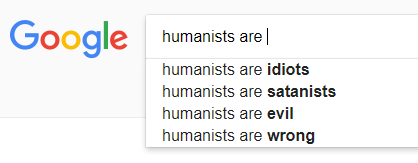Recently, Channel News Asia has released a programme (above) exploring fault-lines in Singapore and how terrorism and religiously-motivated hate crimes has affected how Singaporeans view each other’s religious communities.
The one-hour special, Regardless of Religion, features candid conversations between presenter Dr. Janil Puthucheary, and everyday people of different faiths. It also conducts several social experiments with participants from different faiths.
As part of the programme, there was a look at some of Google’s most-searched questions about religion in Singapore. The search threw up a concern about religious illiteracy, which could easily breed misunderstanding and distrust. For example, people have avoided sitting next to female madrasah students while on public transport.
CNA’s and Dr. Puthucheary’s efforts to facilitate conversations between people of different faith communities are commendable. The Humanist Society (Singapore) has always supported more candid dialogue over conversations that must be had, regardless of its sensitivity.
Out of curiosity, some humanists conducted a Google search about some questions that people ask about atheists and humanists:
Our own Google search shows that prejudices of non-religious people still abound in society-at-large. While some are curious questions, such as how atheists get married and why some celebrate festivals, the search throws up some hostile sentiments.
Considering this is a Google search customised for Singapore, some search terms are troubling. It also does not help that some religious texts and religious leaders occasionally cast aspersions on the non-religious. A common aspersion is how we have no morals without a belief in God.
Ironically, although many non-religious people are no longer interested in religion, the non-religious remains a religious issue. For example, the mere decision to be an atheist can trigger feelings of religious offense.
Like all religious and racial communities, the non-religious should also be included in national efforts to build social resilience. Our experience with humanists, atheists, agnostics and other like-minded people at our events has taught us that the non-religious, despite not being part of a faith tradition, have plenty to say about religious harmony and living ethical lives.







